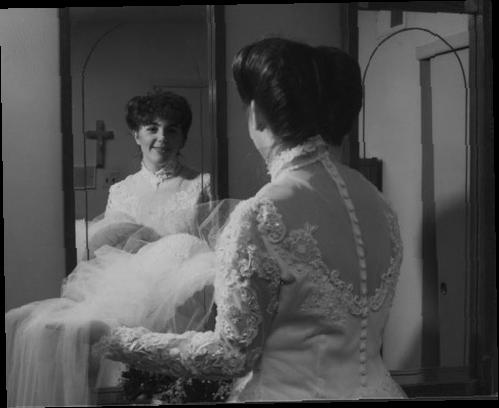Fighting for Dear Life (12 page)

Of course, that was the deal breaker.
But even though it was late in the game, and even though we appeared to be dealing publicly now with irreconcilable differences, I felt an agreement might still be reached privately within the family. And if there were even the slightest possibility, we had to try. Which is why, behind the scenes, we had taken steps toward mending fences, hoping to arrive at what we believed might be a win-win solution.
HERE'S THE DEAL
On October 26, 2004, I drafted a letter of compromise and gave it to Michael's attorneys on behalf of the Schindlers. Contrary to the media's portrayal of Bob and Mary, this was not a grudge match on their part. They would have agreed to
anything
that would have somehow allowed Terri to continue living so they could take care of her and get her the therapy and rehabilitation they believed would help her.
I invite you to read the actual letter we sent, which is reprinted at the end of this chapter. Briefly summarized, the Schindlers were very nondemanding. Michael could keep all the money from the malpractice settlement. He could remain married to Terri, or get a divorce and move on. Michael could still inherit Terri's estate. He could have as much or as little contact with Terri as he desired. He could visit her if he so wished, or he could walk away and never turn back. That would be Michael's call to make.
As long as he wouldn't take steps to end her life, Michael could remain as involved as he liked. Or, if he wanted to be released from all responsibilities, that was fine too. If he had an insurance policy on Terri, he could keep the funds upon her natural death. If there was ever money to be made later telling Terri's story, he'd be welcome to keep those funds.
Anything
was fine with Bob and Maryâjust as long as he allowed them to keep their daughter alive.
For their part, as you'll find in the letter, Bob and Mary and their two other adult children, Bobby and Suzanne, would agree to care for Terri at their own expense. They promised never to pursue any legal action against Michael concerning anything that had transpired from the time of her collapse to the present. As far as we were concerned, we had found the makings of a peaceful and private resolution to this dispute.
What grounds for objection could Michael possibly raise?
We delivered the offer to George Felos and then waited . . . and prayed really hard.
When I called George for a reaction, he simply rejected our offer out of hand. He stressed that the only deal Michael would consider would be for the Schindlers to agree to allow a doctor to go in and examine Terri; if the doctor thought she was in a persistent vegetative state, then Michael wanted the Schindlers to agree she would die. If, however, the doctor said she had the possibility of being rehabilitated, then she could live.
At that point in the conversation, I said, ââGeorge, you and I both know Terri is alive and nonterminal. Regardless of her prospects for recovery, this family loves her and wants to take care of her.'' In my heart I could tell we were miles apart with little hope of spanning the distance between us.
The hard reality was this: I knew both parties never would be able to agree on the same doctor. Remember that a PVS diagnosis is extremely subjective. Yet as the saying goes, ââNothing ventured, nothing gained.'' I told George that if
we
could pick the doctor, we'd take the deal. He laughed. We both knew that if Felos picked the doctor, Terri would be dead for certain. The Schindlers had no confidence that an impartial doctor could be selected by the court since the court had demonstrated for years that it was leaning toward death in this matter.
Though our offer of compromise had been rejected, I refused to give up trying to find a private solution. There just had to be another way to bring these two parties together. The absolute core, haunting question that drove me to seek common ground was this:
When you have
a mom and a dad who are begging to care for their daughter, why not err on the
side of life?
What possible reason was preventing Michael from agreeing to a compromise that would allow Terri to live and receive therapy? There had to be a way to unlock this deadlock. With the New Year just around the corner and with time running out on our options, a new avenue to reconcile the differences presented itself: mediation by former president Jimmy Carter.
PRESIDENTIAL APPEAL
Throughout our involvement in the case, we received hundreds of thousands of offers to help. They came from every imaginable direction, and even a few you couldn't imagine. Of each ââhot tip'' or ââsurefire solution'' we had to ask two questions:
1. Was it legitimate?
2. Was it potentially helpful?
One of the more promising phone calls came from a news producer in our state capital, Tallahassee. He had first made contact with us right about the time Terri's Law had been struck down. He had followed the legislature closely as they voted on Terri's Law, and he had strong pro-Terri feelings. When he approached us, he asked if we had ever thought about getting former president Jimmy Carter involved. I told him we hadn't considered that avenue, but if President Carter would help us, why not? We were open to any legitimate approach that might mend the rift in this family. Of course I told him it would help if he had an ââin'' with the Carters.
As the producer described his connection to the Carter family, it triggered a memory of a story Bob Schindler had told me. At the time, thousands of supporters were trying to reach Bob. Due to the overwhelming number of phone calls he'd receive (sometimes upward of a hundred calls in a single night), Bob occasionally forgot who had called.
Keep in mind, Bob Schindler is a semiretired man with no staff, no secretary, and no press handler. He and Mary and the family had to juggle everything on their own. So when he received a call from a ââRosalynn Carter from Georgia,'' the name didn't automatically ring any bells. Bob didn't put two and two together, you know, that this was
the
Rosalynn Carter, wife of former president Jimmy Carter. Afterward, Mary read him the riot act much like my wife would if I had done the same thing. I laughed.
The point is that Rosalynn Carter apparently had contacted Bob in the past, and now we had somebody offering to connect us with the Carter Center for mediation. President Carter has a long track record of dealing with difficult situations, including mediating with dictators, heads of state, and warring nations. The former president had been a recent recipient of the Nobel Peace Prize. His well-known mediation skills might be exactly what we needed to bridge the gap.
I told the producer that if President Carter would step forward and work with us, we'd be all for it. But before I could propose this to Mr. Felos, I had to have Mr. Carter's assurances that he and his team would meet with us. Without that, we'd look pretty ridiculous securing Michael's consent only to have the Carter Center then refuse to help.
The producer graciously understood. He approached his mother, who had the primary contact with the Carters, and asked her to inquire about this option. As a Democratic Party supporter, the producer's mother had been to a number of fund-raising events with Jimmy Carter. And as a mother with her own handicapped child, she believed that the disabled should be treated with dignity. She also felt strongly that to kill Terri through dehydration and starvation was unconscionable.
I hesitated telling too many people because I didn't want to raise false hopes. After all, there were hundreds of behind-the-scenes options we at the Gibbs Law Firm were chasing down; most never came to fruition. Still, as with this promising lead, we had to be ready for any and all contingencies. There wasn't time to sit around and assume we could work out the details next monthâTerri might not be alive that long. In that respect this case always had that constant life-and-death pressure.
Every day, every hour was precious.
We soon learned that the Carter Center had declined involvement in the case. Both this mother and her producer son in Tallahassee were heartbroken. Whatever level of interest Rosalynn had exhibited earlier by trying to contact the Schindlers, the Carter Center had now determined that Terri's situation fell outside its scope of mediation. You can imagine Bob and Mary's disappointment when we later discussed this missed opportunity.
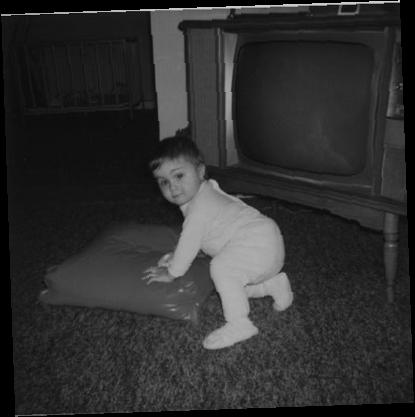
Schindler family photo
⢠Terri at eleven months old, 1964.
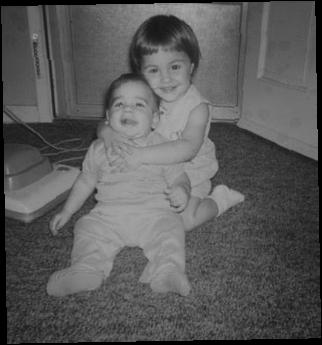
Schindler family photo
⢠Bob, Mary, Terri, and Bobby Schindler celebrate Tern's third birthday, December 3, 1966.
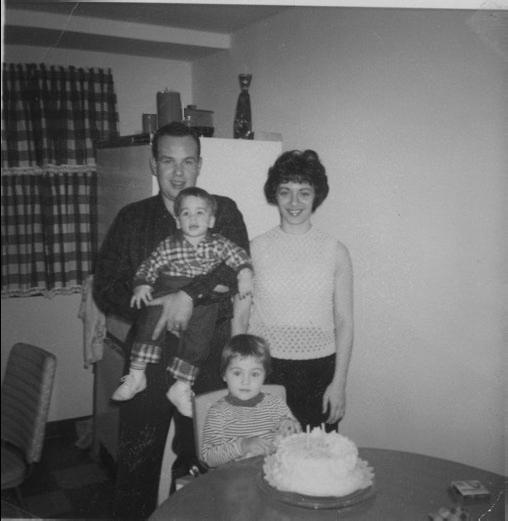
Schindler family photo
⢠Terri and her brother, Bobby, in 1965.
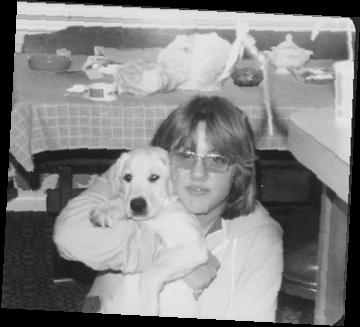
Schindler family photo
⢠A teenaged Terri with her Labrador, Bucky.
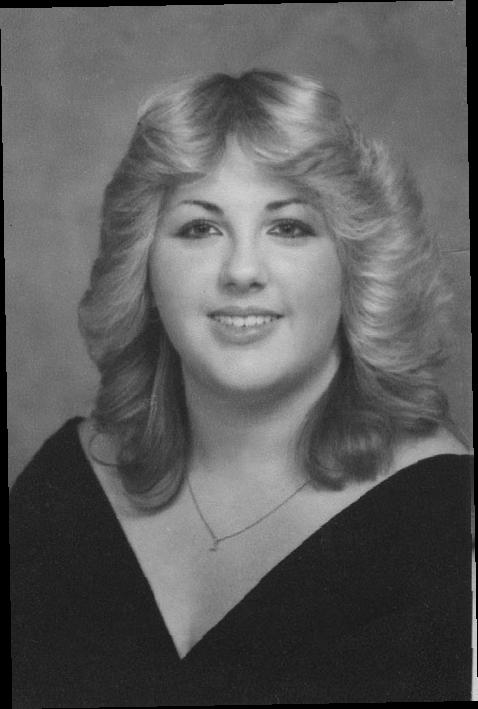
Schindler family photo
⢠Terri's senior class picture, 1981.
